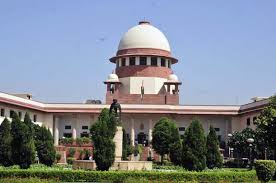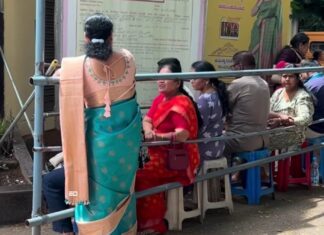For years Muslim faith has been generally believed to have encouraged polygamy. There have been instances when a man converted to Islam from another religion in order to marry a second wife under Muslim Personal Law.
The Qur’an has allowed a man to marry more than one wife usually a widow to provide her shelter and a state of security. It was a provision to ensure that the war-time widows in that era were not left in starvation. Islam has never been against women and had sought to protect them from exploitation at the hands of foreign invaders.
Bigamy as envisaged in Qur’anic texts describes a situation with two wives married to the same man living happily under the same roof. Bigamy as more prevalently practiced in India wherein the first wife is usually forsaken and left to fend for herself was never allowed in Islam. Yet Qurán also cautioned men from taking more than one wife with a warning that they will be torn apart on the Day of Judgement in the event that they treat any of their wives unequally in any respect. It also advises men to stick to monogamy “as this would keep you away from injustice.” (Qurán IV:3 & 129) . Predominantly Muslim States such as Turkey and Tunisia had banned polygamy for secular and religious reasons respectively. Whilst Turkey was the first country to legally ban polygamy way back in 1926, what is interesting to note is that Tunisia cited religious reasoning for doing so in 1956.These reasons were-
- First, the Quran limited the practice of polygyny, thus it did not support the practice and clearly intended for the practice to be eliminated over time.
- Second, the Quran demands equal treatment of all wives in a polygynous marriage, which is impossible, thus making the practice illegal.
In a landmark judgment on 10th February, 2015 by a Supreme Court bench comprising of Justices AK Goel and TS Thakur declared that taking up more than one wife is not a fundamental right of a Muslim as guaranteed by Article 25 – Freedom of conscience and free profession, practice and propagation of religion of the Indian Constitution. The petition filed by Khursheed Ahmad Khan V/s UP State Government,Mr. Khan had cited polygamy for a Muslim man as a fundamental right guaranteed by Article 25 and thus challenged UP State government’s decision. Mr Khan had been sacked from his job as an irrigation supervisor for taking up a second wife Anjum Begum while still being married to his Sabina Begum. As per Rule 29 (1) of the Uttar Pradesh Government Servant Conduct Rules, 1956, he should have taken up prior permission from the state government before taking up a second wife.
The SC dismissed his plea and upheld the UP State Government’s decision. “What was protected under Article 25 was the religious faith and not a practice which may run counter to public order, health or morality. Polygamy was not integral part of religion and monogamy was a reform within the power of the State under Article 25,” Justice Goel wrote.
Justice Goel, quoted in the verdict that, “a practice did not acquire sanction of religion simply because it was permitted.” Broadly interpreted, it simply means that Islam has allowed a man to have upto four wives, it doesn’t mean that polygamy is fundamental to practicing of the Islamic faith.
Up till now there had been no judicial precedent under which a man’s right and contract a second marriage could be examined by any authority before he embarked on such a course of action.
The legislature or the BJP ruled Central government is yet to comment on this decree of SC. This verdict though ambiguous, brings us one more step closer to bridging the gap between personal laws governing Hindus and Muslims and realizing the aim of a Uniform Civil Code as stated in our Constitution’s Directive Principles.
Picture credits: Google Images
By Shriya Dargan


































